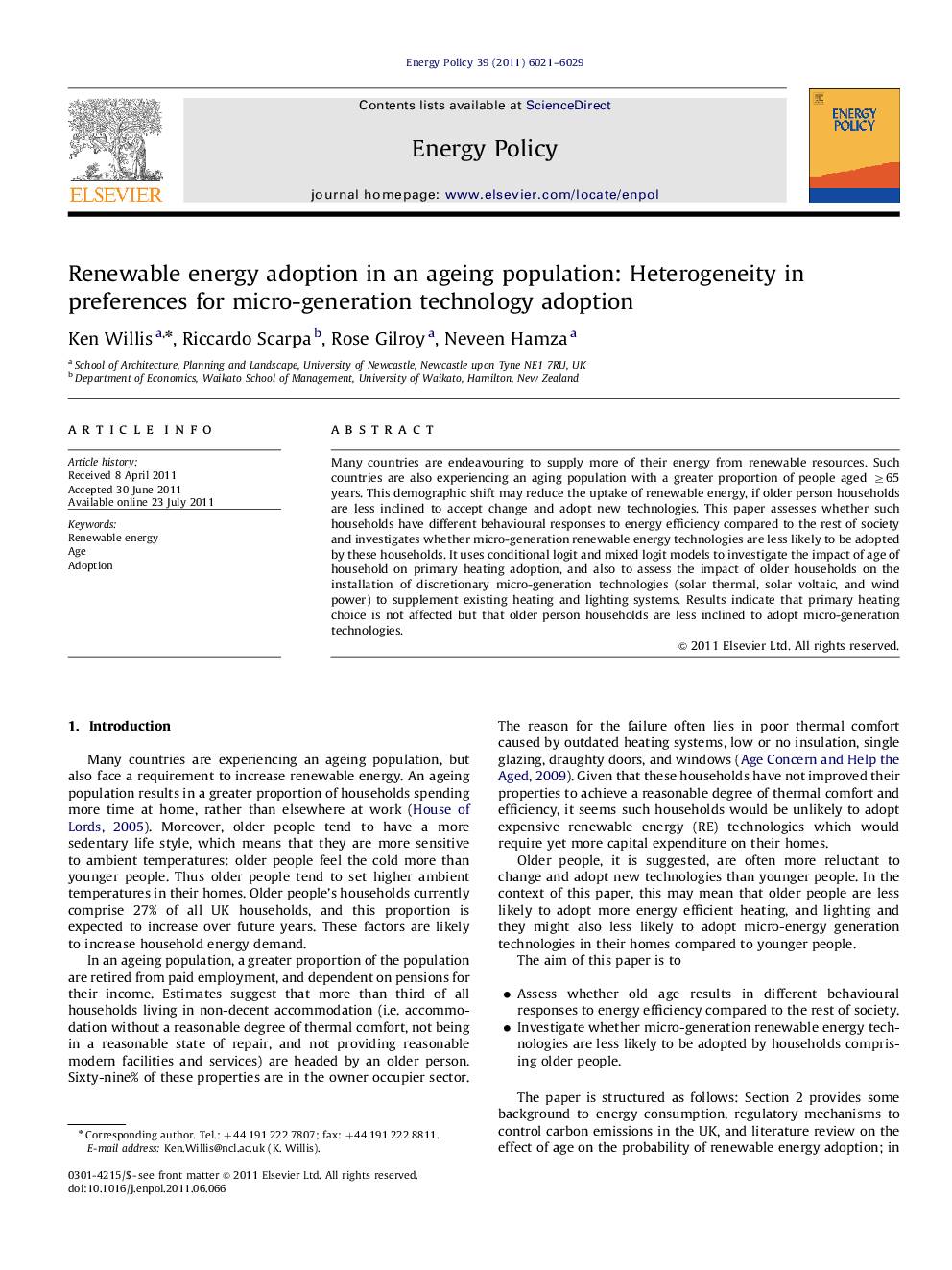| Article ID | Journal | Published Year | Pages | File Type |
|---|---|---|---|---|
| 993044 | Energy Policy | 2011 | 9 Pages |
Many countries are endeavouring to supply more of their energy from renewable resources. Such countries are also experiencing an aging population with a greater proportion of people aged ≥65 years. This demographic shift may reduce the uptake of renewable energy, if older person households are less inclined to accept change and adopt new technologies. This paper assesses whether such households have different behavioural responses to energy efficiency compared to the rest of society and investigates whether micro-generation renewable energy technologies are less likely to be adopted by these households. It uses conditional logit and mixed logit models to investigate the impact of age of household on primary heating adoption, and also to assess the impact of older households on the installation of discretionary micro-generation technologies (solar thermal, solar voltaic, and wind power) to supplement existing heating and lighting systems. Results indicate that primary heating choice is not affected but that older person households are less inclined to adopt micro-generation technologies.
► Heterogeneity exists in decisions on micro-generation technology installation. ► Older person households are less inclined to adopt micro-generation technologies. ► Micro-generation technologies fail a social cost–benefit analysis test.
